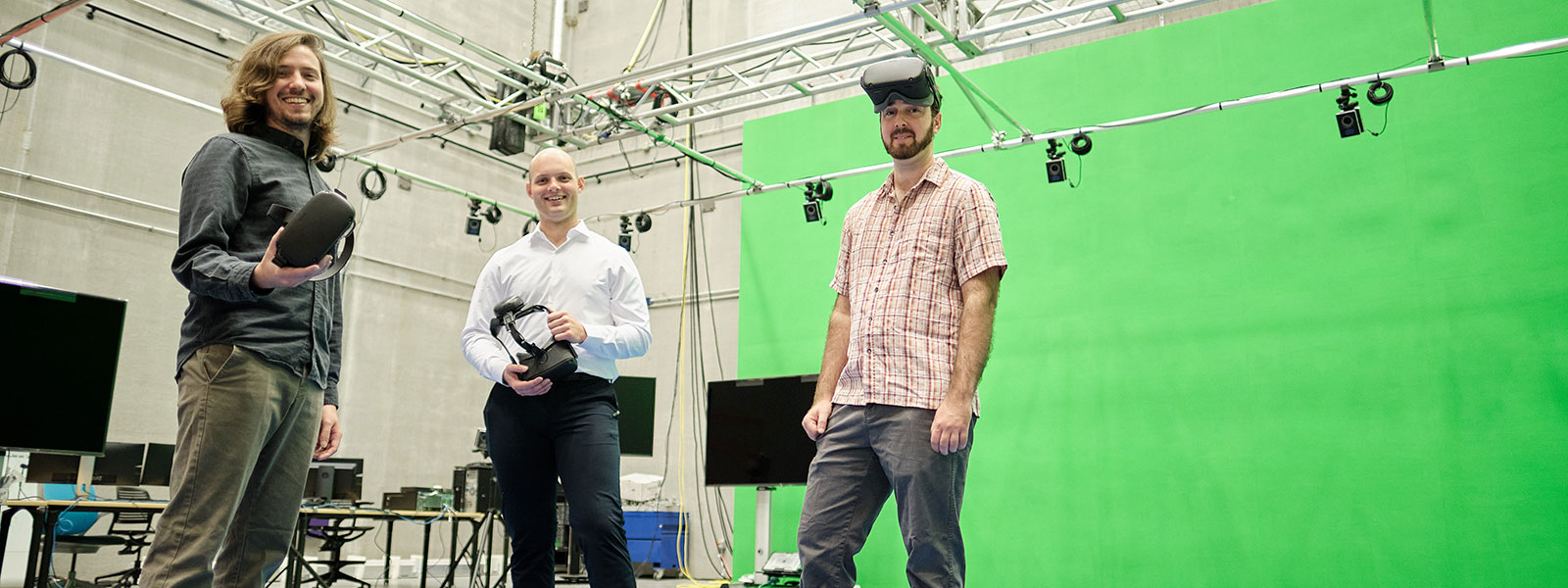Bringing creative ideas to (virtual) reality
Immersive Storytelling Residency launches, revolutionizing content creation
UNCSA believes in innovation and in creating opportunities for creative minds to carry out groundbreaking projects. Take, for example, the first Immersive Storytelling Residency. In the spring and summer of 2020, three resident artists in the School of Filmmaking’s Media and Emerging Technology Lab (METL) joined together to create a one-of-a-kind virtual reality experience as a part of this unique program.
The team—comprised of screenwriter Trent Spivey (B.F.A. Filmmaking ’18), software engineer Alex Moro, and 3D technical artist Fernando Goyet—was given an interesting challenge.
“We were tasked with thinking about how we could use this immersive technology and platform to cultivate empathy and awareness, while still creating an entertaining and meaningful experience—all within about an 8- to 12-minute time frame,” Spivey says.
The project, an animated virtual reality film called “BonsAI,” is set in the not-so-distant future, and is based around the idea that the person immersed in the VR experience is embodying a botanist operating on the fringes of biology and artificial intelligence. As the botanist, you work secretly to thwart a menacing new plant virus. As you orchestrate your solution, you must evade the reach of your former employer: a global agribusiness with a keen interest in your work.
The goal of the residency—which was made possible in part by a MegaGrant from Epic Games, as well as a grant from the North Carolina Small Business and Technology Development Center—is to bring together individuals with different skill sets who may not be able to create something as complicated as an immersive digital experience on their own.
“Our focus with METL is to apply emerging technology for storytelling and content creation,” says Ryan Schmaltz, METL director. The idea for the residency developed from a need he saw arising in the burgeoning industry. “There are so many people with ideas, but without the resources to further develop their concepts.”






